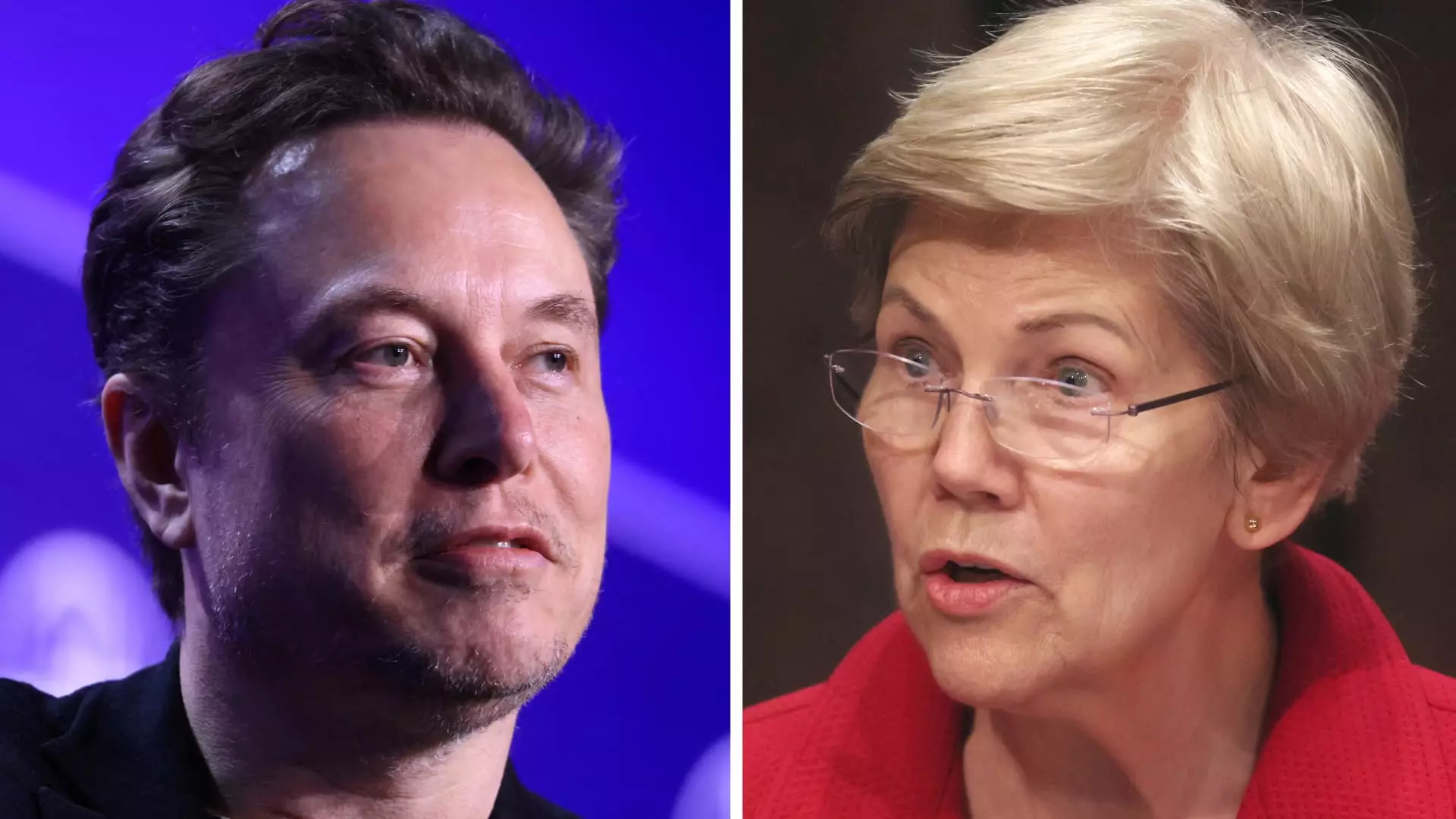Senator Elizabeth Warren’s recent inquiry into Tesla’s management under the leadership of Elon Musk highlights a significant concern regarding corporate governance and the potential misuse of company resources. By alleging that Musk’s operations might lead to conflicts of interest, Warren not only raises questions about the ethical landscape within Tesla but also scrutinizes the duties of its Board of Directors. As the autodidactic industries of AI, space exploration, and transportation continue to intertwine, it becomes crucial to analyze the implications of Musk’s multiple ventures on Tesla’s performance and integrity as a corporation.
Elon Musk’s portfolio is expansive, spanning enterprises like SpaceX, Neuralink, The Boring Company, and, more recently, xAI. While such diversification can lead to innovative synergies, it may also detract from Tesla’s primary mission as a leading electric vehicle manufacturer. Warren’s letter to Tesla Chairwoman Robyn Denholm emphasizes a troubling narrative where Musk’s focus appears fragmented, especially since these overlapping ventures could siphon resources away from Tesla. This fragmentation becomes particularly alarming when one considers the practical management challenges that arise from balancing several industry-leading companies simultaneously.
Warren’s assertion that the Tesla Board is possibly failing in its fiduciary responsibilities sheds light on an essential aspect of corporate governance. The Board is expected to act in the best interests of shareholders, and any undue influence from Musk’s other enterprises could compromise that principle. In her letter, Warren specifically points out instances where resources intended for Tesla were redirected toward Musk’s other projects, reinforcing the notion that these conflicts of interest could be detrimental. By failing to provide adequate oversight, the Board risks undermining shareholder confidence, which may ultimately affect stock performance and long-term growth.
Regulatory Response: The Role of the SEC
Warren’s call for the SEC to examine Musk’s actions reflects ongoing concerns about transparency and regulatory compliance in high-profile corporate leadership. Historical precedents indicate that unchecked executive behavior can lead to disastrous outcomes for companies, particularly in the tech sector where innovation often outpaces regulation. Therefore, it’s crucial for Musk’s dealings, including his controversial sale of Tesla shares to finance Twitter (now X), to undergo scrupulous examination to ensure that such maneuvers do not violate existing regulatory frameworks or shareholder trust.
As the situation evolves, the onus remains on Tesla’s Board to act decisively and transparently. Addressing Warren’s inquiries before the stipulated deadline of August 23 will be pivotal in either reinforcing or jeopardizing the faith investors have in the company’s governance. By responding comprehensively to concerns surrounding Musk’s overlapping interests, Tesla’s Board can contribute to a narrative of accountability rather than one fraught with suspicion and controversy. The dialogue around corporate responsibility in the face of rapid innovation sets a critical tone for future discussions about executive conduct in technology-driven industries, highlighting the need for a balanced approach that champions both growth and ethical stewardship.


Leave a Reply